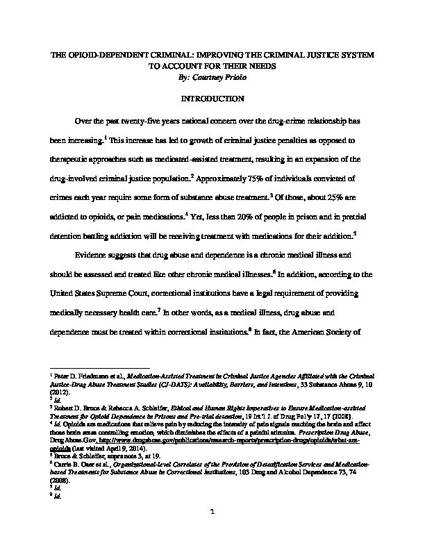
Over the past twenty-five years national concern over the drug-crime relationship has been increasing. This increase has led to growth of criminal justice penalties as opposed to therapeutic approaches such as medication-assisted treatment, resulting in an expansion of the drug-involved criminal justice population. Individuals who are opioid-dependent are vulnerable at the time of arrest, and at the time of their initial detention due to their chemical dependence and impairment of their neurocognitive functioning. The denial of medication to inmates in order to alleviate withdrawal symptoms is stigmatizing, punishing, and potentially life-threatening. This article argues that medication-assisted treatment for the criminal justice population remains underutilized. Failing to engage opioid-dependent drug-users in treatment while they are within the criminal justice system results in substantial costs not only to the individual but also to the community, now and in the future. Hopefully addressing inadequate knowledge and the negative attitudes towards medication-assisted treatment in the criminal justice system, will produce an increase in its adoption.
- medication-assisted treatment,
- MAT,
- opioid-dependent
Available at: http://works.bepress.com/courtney_priolo/1/